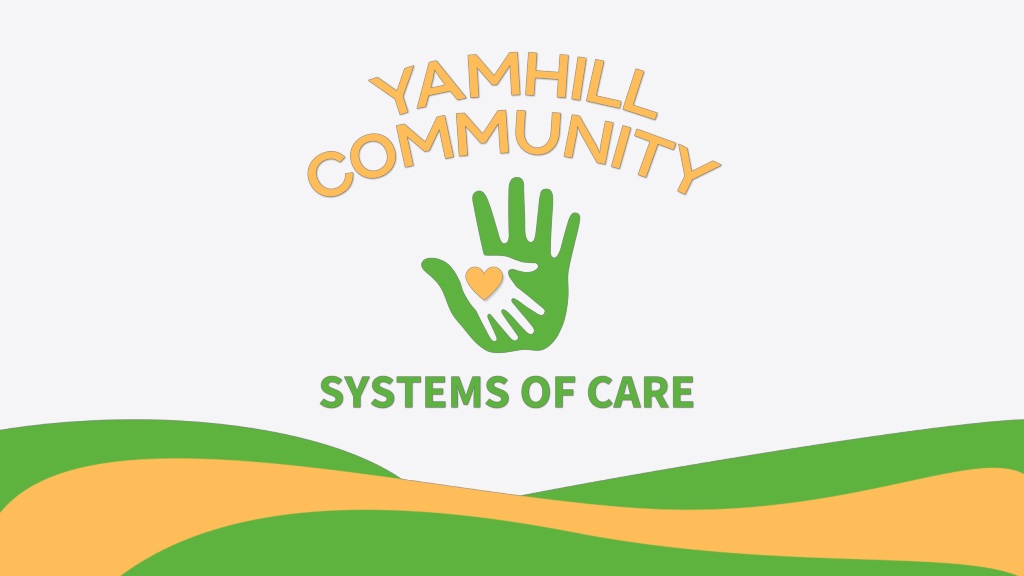

0 likes | 10 Views
Yamhill Community System of Care (SOC) is a collaborative philosophy supporting youth and families with significant behavioral and mental health needs. It involves a coordinated network of services integrating care planning, culturally competent, family-centered, and community-based approaches to reduce trauma, improve coordination, and enhance family functioning.

E N D
What is Yamhill Community SOC? System of Care is a philosophy based on cross system collaboration that supports youth and families who have complex and significant behavioral and mental health needs. SYSTEMS OF CARE
Oregon State Law Defines System of Care as: • A coordinated network coordinated network of services and supports to youth that: • Integrates Care Planning and management across multiple levels of care • Recognizes disability as a natural and healthy part of the human experience • Is culturally and linguistically competent • Is designed to build meaningful partnerships with families and youth in the delivery and management of services and the development of policy • Has a supportive policy and management infrastructure at the state and local levels; and • Is community-based with relationships at the local level. SYSTEMS OF CARE
Why SOC? 1) Keep children in their communities 2) Promote a holistic approach to ensure all domains and needs are considered in serving children and families 3) To reduce trauma to children and families and create trauma informed systems 4) To create family centered systems 5) To reduce redundancies for families and systems while creating a family and child-centered response to children with high needs 6) To reduce overall costs to systems and families while providing better care 7) To keep children out of high-cost settings through increasing community-based services and supports SYSTEMS OF CARE
Principals of System of Care 1. Interagency collaboration 2. Individualized strengths-based care 3. Cultural competence 4. Child and family involvement 5. Community-based services 6. Accountability SYSTEMS OF CARE
Benefits of System of Care •Reduced strain: Families can experience reduced strain when caring for a child with a serious emotional disturbance. •Improved family functioning: Measures of family functioning can improve. •Improved care coordination: Caregivers can access information quickly to diagnose problems and provide care. •Patient engagement: Remote patient monitoring can build patient engagement. •Cultural competence: Systems of care are built on an understanding of the family's culture, race, values, and ethnic background. •Integration and coordination: Systems of care can improve coordination and collaboration between primary health care and mental health care. SYSTEMS OF CARE
Ways to Participate in SOC 1. Attend monthly meetings 2. Identify barriers 3. Collaborate on solutions 4. Develop relationships with community members and families SYSTEMS OF CARE
When Are The Meetings? YAMHILL COMMUNITY SOC MEETS MONTHLY AND ONCE QUARTERLY Executive Council: Meets quarterly on the second Thursday of March, June, September, and December. 11 AM - 12 PM Combined Advisory & Practice Committee Meeting: Online: Third Thursday from 9 am – 11 am In Person: In Person: Quarterly third Thursday from 4 to 6 pm SYSTEMS OF CARE